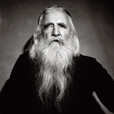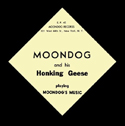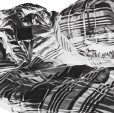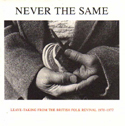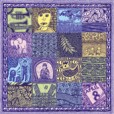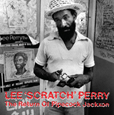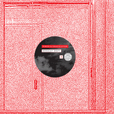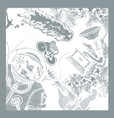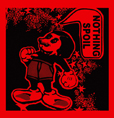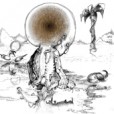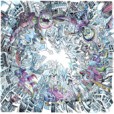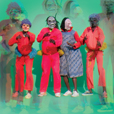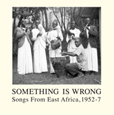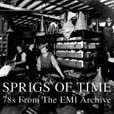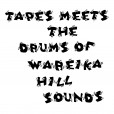Your basket is empty

Originally relelased on the Moondog label in 1955.
At its darkest and most driving. The group is clear and unanimous — this is their best yet.
At its most open, shifting and expressive to date. For all the music’s complexity and deep coherence, freedom is the key. At times it grooves hard; at others it’s lush, romantic.
With Tikiman and Marc Muellbauer.
A handful of LPs signed by Moritz!
Tony Allen, Max Loderbauer and Moritz von Oswald; mixed by Ricardo Villalobos.
Moritz from Basic Channel and Rhythm And Sound, alongside Vladislav Delay (Chain Reaction) and Max Loderbauer (Sahko): a dream crossing of classic Berlin techno, On-The-Corner Miles, Larry Heard, and Can.
Beautiful, insurgent, fabulously danceable jazz music from South Africa, flowing out of the penny-whistle kwela bands of the 1950s. (Kwela means ‘get moving’, in Xhosa.)
Bra Gwigwi played alto and clarinet alongside Hugh Masekela and Kippie Moeketsi in The Jazz Dazzlers; also in The Jazz Maniacs and The Harlem Swingsters. He came to the UK from Johannesburg as an actor and clarinettist in King Kong — a musical about a Zulu boxer — which opened in London in February 1961.
Recording in January 1967, at Dennis Duerden’s Transcription Centre, he is joined here by Dudu Pukwana, Chris McGregor, Laurie Allan, and Ronnie Beer, all from The Blue Notes. Ladbroke Grove legend, and mainstay of our London Is The Place For Me series, Coleridge Goode plays double bass.
No less than sixteen shots of jubilant, jump-up mbaqanga. Check the Ethiopian vibe of Mra (which became core repertoire of The Brotherhood of Breath). Listen to Nyusamkhaya, and try to get it out of your head. Impossible.
Lovely notes by Steve Beresford, too.
‘The South African folk music that makes people glad to be alive!’
‘***** beautiful, deeply affecting… hard to beat as the year’s most worthwhile reissue’, The Guardian; ‘magnificent… wonderfully austere’, Time Out.
This is lovely.
Brand new, rambunctious, rootsy, spiritual brass-band music from Lagos, with singing, drums and home-made percussion.
Obadikah is a group of old friends who play together in the Cherubim & Seraphim and Baptist churches of the Ikeja and Isale Eko districts. A couple of them were founder-members of the Eko Brass Band; they’ve played with pretty much all the key Nigerian reggae artists.
The tunes are mostly traditional Yoruban melodies, often sung at bed-time. The songs are mostly original, sung in Yoruba (though Jomido is an Egun song from the Badagry area of Lagos state).
Originally released in 1980: the final work to emerge from the Black Ark studio, before its permanent destruction, crossing the soundworld of Roast Fish Collie Weed And Cornbread into new hybrids.
The two dubstep pioneers at the top of their game. Truly an album, the music is multi-levelled — dark as anything at times, but engrossingly varied and emotionally shaded, always on the move.
Extra to the LP, with a magnificent, epic, head-scrambling remix, more spaced and spooked than the original. Shackleton’s dream liturgy fully unfolds — an eerie, garbled sublimity, a kind of black-magic plainsong.
Three deep funk instrumentals — HBE on the opener. Sound-wise, doubly lethal, as alive as vinyl gets. Silvered, silk-screened sleeve.
Two exclusives: Erykah Badu’s irresistible do-over of the euphoric album instrumental There, with Malian synth-freak Tidiane Seck; and a dub by Mark Ernestus. Lovely silk-screened sleeve.
West London broken beat meets JA dancehall. A Co-op classic by this Bugz mainstay.
Killer EP. Next-level Shackleton.
Taking off from Beaugars Seck’s foundational sabar drum rhythms — recorded by Sam in Dakar in February 2020 — Shackleton has constructed a trio of intricately layered, luminous, enchanted, epic excursions. The second is more dazzled and meandering, with jellied bass, insectile detail, and discombobulated jabbering; the third is more liquid, fleet of foot, and psychedelic, with a grooving b-line and funky keyboard stabs, scrambled eastern strings and hypnotic vocalese.
The harmonium in The Overwhelming Yes sounds like Nico blowing in chillily from up the desert shore.
The overall mood is wondrous, twinkling with light, onwards-and-upwards; an uncanny, dubwise mix of the ancient and the futuristic.
Mark Ernestus’ Version is stripped, trepidatious, mystical, and stranger still, with just a snatch of the original melody, extra distortion and delay, and crystal-clear drum sound.
So… Twenty minutes of startlingly original music, with Shackleton the maestro at the top of his game, and a characteristically evilous dub by Mark Ernestus. Mastered by Rashad Becker; handsomely sleeved.
Sick to the nth. Love 4 Ever.
No-one else makes music like this: devilishly complex but warm and intuitive, stirring together a dizzying assembly of outernational and outerspace influences, whilst retaining the subby funk-and-hot-breath pressure of Shackleton’s soundboy, club roots.
The result is an evolutionary, truly alchemical music — great shifting tides of dub, minimalist composition and choral song (Five Demiurgic Options); ritual spells to ward off the darkness (Before The Dam Broke, The Prophet Sequence); radiophonia and zoned-out guitar improv (Seven Virgins); even the febrile, freeform psychedelia of eighties noise rock (Sferic Ghost Transmits / Fear The Crown).
Over the five years since Music For The Quiet Hour, Vengeance’s vocal and lyrical range has rolled out across this new terrain. Throughout these six transmissions he’s hoarse preacher, sage scholar and ravaged bluesman; blind man marching off to war, and exhausted time-traveller warning of impending socio-ecological catastrophe.
Six dialogic accounts of our conflicted times, then, expanding beyond the treacly unease of the duo’s early collaborative work into something subtler and more emotionally shattering — its shades of brightness more dazzling, and its darkness even murkier.
“We almost didn’t hear it when the foundations went.”
Shackleton’s most expansive, ecstatic and hallucinatory music to date. Four extended excursions channeling Congotronics way to the east, with an aura of restrained mania reminiscent of the feral pomp and gallows humour of Coil’s moon-musick phase.
The pairing with Tomasini is a match made in heaven. Swooping from deep growl to piercing falsetto, his four-octave voice both heightens the taste for the theatrical that’s always been integral to Shackleton’s music, and makes explicit the latter’s kinship to the occult energies of the UK’s post-industrial underground.
As the title suggests, these are shadowy songs rich with allusions to bodily ritual and psychic exploration, with Tomasini’s lyrics framed by luminous whirls of hand-struck drums and synthetic gamelan, bells and tumbling organ melodies, all earthed by dubwise bass. You Are The One escalates from delicate choral chant to full-bore psychedelic organ freakout; Rinse Out All Contaminants is a slow incantation, to purge all negative thoughts; the melodies of Father You Have Left Me are smudged like early Steve Reich, then burned out by snarling subs; and the magnificent Twelve Shared Addictions balances elliptical melodies like spinning plates, gradually unfurling into a breakneck storm of voice and hammered keys.
An astounding compilation of the breakneck Shangaan dance output of the Nozinja studio in Soweto, recorded between 2006 and 2009.
‘An album of cathartic intimacy, built around electronic textures and sparse percussion, with White’s gently yielding, half-spoken vocals pitched pleasingly between Laurie Anderson and Joni Mitchell’ (Mojo).
The second half of the CD.
Three murderous steppers dubs on a propulsive, rat-tat-tat rhythm, combining mystical spaciousness with detail and ferocity. Angry-lion bass and smears of brass, fusillades and explosions, scares and shocks, oriental pentatonics, clattering percussion and synthy transcendence… the business. The second mix is nastiest; the third is the wildest and most discombobulated (and our favourite).
Bim bim bim.
‘A wicked sense of pacing, of beauty and absurdity, and an instinctive ear for musical action’ (The New York Times). ‘There’s no theme or continuity… unless you count sheer awesomeness’ (Fader).
‘Early contender for 2009’s album of the year. Yes, already’ (Mojo). ‘The sheer soul in her voice is revolutionary’ (NME).**** The Independent, The Times. ‘**** a masterclass in gritty southern soul’ (Daily Mail).
This started out a couple of years ago as a grounation drumming session above the old headquarters of the Mystic Revelation Of Rastafari, in Wareika Hill, Kingston, JA. Four funde, a repeta and a bass drum. Back in London, contributing flute and guitar, Kenrick Diggory unbottled the deep rootical psychedelia and sheer awe of Hunting — the Keith-Hudson-versus-Count-Ossie wonder of the world — and Tapes added electronics, a shot of Drum Song… and a giddily intense binghi dub.
